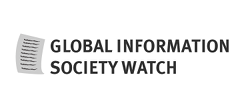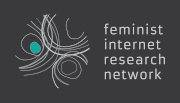APC considers the Human Rights Council (HRC) as a key mechanism for advancing human rights online. This overview includes some highlights of key outcomes and of APC’s engagement at the recently concluded 50th session of the HRC.
When the COVID-19 pandemic challenged the whole world, the experience of communities in the rural and remote Ciracap sub-district in West Java, Indonesia, showed the importance and power of building a local response to the crisis. Welcome to the 48th monthly round-up of developments impacting you...
APC's priorities at this session of UN Human Rights Council include gender-based violence online, in particular the issue of gendered disinformation and violence against women journalists; freedom of expression and association; and the human rights impact of the tech sector.
Joint statement
HRC 50: Civil society presents key takeaways from Human Rights CouncilAPC and other civil society organisations from around the world share reflections on the key outcomes of the 50th session of the UN Human Rights Council, as well as the missed opportunities to address key issues and situations.
Issue briefs
At the interstice of digital rights and environmental justice: Four issue briefs to inform fundingThese issue briefs highlight potential priority areas for funding that would bring the work of digital rights organisations and environmental justice actors closer together, based on the need for the two groups to work more collaboratively given the global environmental and climate emergency.
Joint statement
Hold the Line Coalition demands immediate decriminalisation of libel in the Philippines as Maria Ressa faces extended jail sentenceAPC and other members of the Hold the Line Coalition condemn the Philippine Court of Appeals decision to uphold the conviction of Nobel Laureate Maria Ressa and former Rappler researcher Rey Santos Jr. on trumped-up charges of cyber libel.
Joint submission
Civil society calls on Indian government to withdraw amendments to IT RulesIn this submission, APC and other civil society groups call on the Indian Ministry of Electronics and IT to withdraw the amendments recently proposed to the country's IT Rules and to commence a process of consultation on the proposed amendments.
Joint statement
Shutdown order against Rappler must be revoked immediatelyAPC and other members of the Hold the Line Coalition condemn the shutdown order against Maria Ressa's Rappler media group, approved by the Philippine Securities and Exchange Commission this week.
Joint statement
Civil society organisations reject attempts to silence and criminalise social movements in the context of protests in Ecuador and demand that human rights are respectedThe undersigned organisations and activists firmly reject the violent repression, arbitrary arrests and use of surveillance technologies to intimidate, harass, persecute and silence defenders of human rights and nature in Ecuador in the context of the protests that started on 13 June 2022.
Joint stakeholder report
Universal Periodic Review 41st session – Ecuador: Human rights in the digital environmentWithin the framework of the 41st cycle of the Universal Periodic Review of the United Nations (UPR), APC and Derechos Digitales want to draw attention to some relevant aspects for the exercise of human rights in the digital environment in Ecuador.
Statement
Appointment of the UN Tech Envoy: A renewed opportunity for the strengthening of global digital cooperation and the internet governance ecosystemAPC receives with optimism the long-awaited announcement by United Nations Secretary-General António Guterres of the appointment of Amandeep Singh Gill as his Envoy on Technology, and takes this opportunity to congratulate and welcome Mr. Singh Gill to his new role.
A new research project explores how digital rights and climate and environmental justice intersect. It presents a landscape analysis and seven issue briefs, including four briefs from the APC network that point to collaboration between digital rights organisations and environmental justice actors, and areas of immediate impact and intervention for donors.
Fraud is now the commonest crime in the UK, and most of it is online. Cybercrime and cybersecurity have become some of the biggest problems in digital policy development, and we need to think broader and listen to victims to be able to respond to them.
The COVID-19 pandemic has seen rampant surveillance and citizen monitoring under the guise of public health. FMA's recent research focused on understanding how such privacy and freedoms were being curtailed in the Philippines, providing recommendations for a more equitable response and helping civil society hold the government accountable.





























